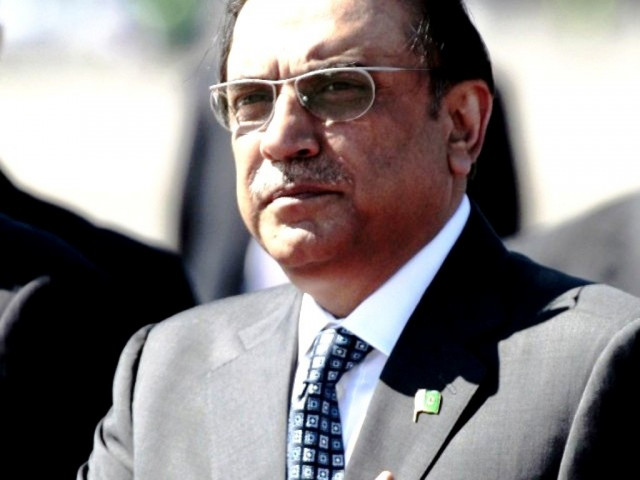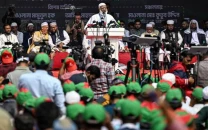Peace in the Middle East: President reaffirms support for Palestine
Says Pakistanis understand a people’s right to self-determination.

Says Pakistanis understand a people’s right to self-determination. PHOTO: REUTERS/ FILE
President Asif Ali Zardari on Tuesday reiterated unqualified support to the Palestinian cause of a right to self-determination. He shared his thoughts while speaking at a ceremony held at the Sindh Governor House to celebrate Palestine’s new non-member observer status in the United Nations (UN). The Ambassador of the Palestine, Walid A.M. Abu Ali, also spoke on the occasion.
President Zardari said this was a historic occasion not just for Palestine but also for the Muslim world.
“On behalf of the people of Pakistan and myself, I wish to express my heartiest congratulations to our Palestinian brothers on this great achievement,” he said.

The president said he was pleased that Pakistan was one of the co-sponsors of the resolution adopted by the UN last month.
“We are proud that we have always stood by the people of Palestine,” he said, adding that it was great struggle and sacrifice that led to the creation of Pakistan, so Pakistanis understand firsthand the importance of a people’s right to self-determination.“Today, we also celebrate the birthday of our founding father Quaid-e-Azam Muhammad Ali Jinnah.

President Zardari also said the new status of Palestine in the UN has vindicated his principle that ‘right’ always trumps ‘might.’ Similarly, he said Pakistanis have supported their ‘Kashmiri brethren’ for decades so that they may achieve the same right, as well.
He went on to express utmost support for an independent and viable Palestinian state, with East Jerusalem as its capital, and favoured an early settlement of the Arab-Israeli crisis on the basis of the two-nation solution. The president also articulated disapproval of the new Israeli settlements which, in his opinion, can ruin the world peace process, and said Palestinian refugees have a right to return.
“Pakistan will continue to lend support to the Palestinians. The sacrifices of our Palestinian brothers will not be in vain,” he said.
Published in The Express Tribune, December 26th, 2012.



















COMMENTS
Comments are moderated and generally will be posted if they are on-topic and not abusive.
For more information, please see our Comments FAQ